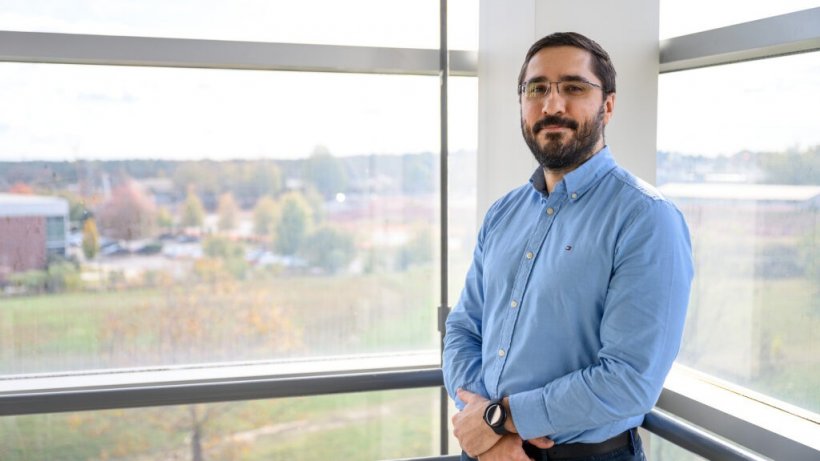 Recognizing veterinary medicine’s increasingly important role in safeguarding public health, the NC State College of Veterinary Medicine has created a cutting-edge dry laboratory that will accelerate the work of Dr. Gustavo Machado, an associate professor of emerging and transboundary diseases whose research centers on preventing the spread of deadly diseases among livestock farms.
Recognizing veterinary medicine’s increasingly important role in safeguarding public health, the NC State College of Veterinary Medicine has created a cutting-edge dry laboratory that will accelerate the work of Dr. Gustavo Machado, an associate professor of emerging and transboundary diseases whose research centers on preventing the spread of deadly diseases among livestock farms.
The lab employs 15 software developers and computer science students, both master’s and Ph.D., and several part-timers who answer help desk calls for Machado’s main focus: the Rapid Access Biosecurity App, a cloud-based computer program he developed that helps state and federal authorities better track and control disease outbreaks among hog, poultry and cattle operations.

“Dr. Machado’s work really sits at that intersection of animal health and welfare and public health,” says Dr. Joshua Stern, associate dean for research and graduate studies. “You might not think about a veterinary school being deep into computational analyses, but that’s what his team does. We were really excited to help him realize his vision for a space where all of his team could work together to solve big problems in big ways.”

More than 17,000 livestock farms, primarily pork producers, across the country have signed up to participate in RABapp, entering data about animals coming from and going to their operations and creating biosecurity plans. The USDA now requires hog producers to have biosecurity plans to be government-certified as disease-free.
About 75 companies and 36 state Departments of Agriculture — an increase of 12 since December — use the program’s data to help secure the livestock market against devastating outbreaks of diseases, including African swine fever, classical swine fever and influenza A, Machado says.
A single outbreak of porcine epidemic diarrhea virus, or PEDV, for example, can cost a farm nearly $600,000. North Carolina, the nation’s third-largest pig producer, is a RABapp user.
The number of users and requests for program updates have increased so much since RABapp’s launch in 2019, Machado and his growing team were running out of collaborative space. Stern worked with Machado to create the consolidated lab in the NC State College of Veterinary Medicine Research Building.
“This has expedited our performance,” says Machado, who has a DVM and a Ph.D. in epidemiology. “People can say, ‘I need to talk to this person’ and just go, so now everything moves very fast. We’ve been very happy since we moved there.”
August 28, 2025 - NC State College of Veterinary Medicine.



